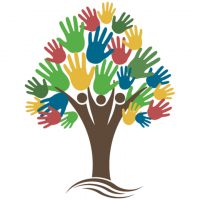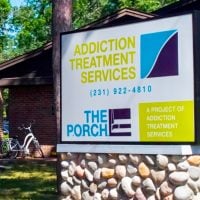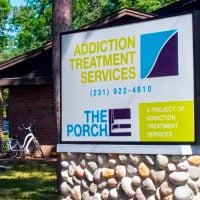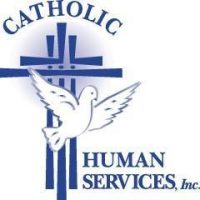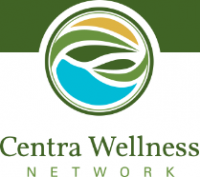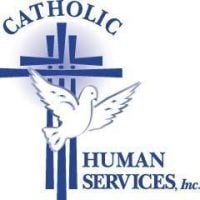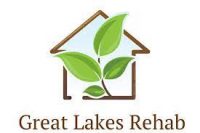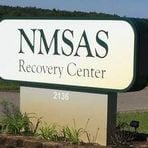Child & Family Services of NW MI
Drug Rehab Center in Traverse City, Michigan
Child & Family Services of NW MI is a nonprofit organization in Traverse City that provides a range of mental health, behavioral health, and addiction recovery services, including individualized and specialized addiction treatment, holistic and evidence-based therapies, and various residential treatment options.
About Child & Family Services of NW MI in Michigan
Child & Family Services of NW MI is a community-based nonprofit organization located in Traverse City, Michigan. Their mission is to provide a comprehensive array of services and resources to promote mental health, behavioral health, and addiction recovery. Their services range from mental health therapy and family counseling to residential and outpatient addiction treatment. Additionally, they provide other care including Parenting Support, Victim Services, and Elder Services.
Child & Family Services of NW MI offers individualized and specialized addiction treatment, including holistic and evidence-based therapies. Their outpatient treatment program includes an Intensive Outpatient Program, weekly addiction counseling, and individualized plans. They also provide medication-assisted treatment and group counseling. Additionally, they offer an array of residential treatment options, including Inpatient Rehabilitation and Extended Care, as well as specialized therapy for women, adolescents, and military veterans.
Child & Family Services of NW MI is accredited by the Commission on Accreditation of Rehabilitation Facilities (CARF), and their facility is licensed by the Michigan Department of Licensing and Regulatory Affairs. Additionally, they are BBB Accredited, and have received various awards, including Best of Traverse City from the Traverse City Business News, and The Guardian of Excellence Award from Press Ganey Associates. They are also members of the Michigan Association of Alcoholism & Drug Abuse Counselors and the Michigan Nonprofit Association.
Genders
Ages
Modality
Additional
Conditions and Issues Treated
Levels of Care Offered
This center offers a variety of custom treatment tailored to individual recovery. Currently available are Outpatient, with additional therapies available as listed below.
Outpatient treatment is often used for drug addicts in drug rehab. Outpatient treatment consists of counseling and therapy sessions. This form of treatment is also called ‘day-treatment’. The outpatient treatment process begins with the addict’s initial detox period, lasting about ten days.
Outpatient treatment is used for those who are at moderate risk for ‘slipping back’ into the addiction, for those who:
- Are not currently experiencing any side effects from withdrawal and can handle social pressure
- Can handle stressors that might trigger relapse
- Have a stable living environment or have moved out of their previous environment, which was not conducive to being sober
- Have a support system that allows them to go to a facility a few times a week while still keeping their current responsibilities
- Have no legal obligations, being either on parole or probation, that require them to seek treatment at a mandatory facility
- Are not currently experiencing any side effects from withdrawal and can handle social pressure
- Have a stable living environment or have moved out of their previous environment, which was not conducive to being sober
Therapies & Programs
Because no single treatment is effective for all addicts, the goal of treatment and therapy should be to figure out what works best for each individual. Tolerance and withdrawal levels differ from person to person, affecting the treatment intensity required. Addiction treatment should aim to help addicts develop healthy coping mechanisms for dealing with their addiction and its underlying causes.
Couples therapy works with clients and significant others in a professional capacity to improve relationship dynamics. This can be helpful for addicts who are trying to marry the idea of recovery into their work, family, social lives – any aspect that has to do with relationships. Through counseling sessions, addicts will have an opportunity to talk about their addiction with professional partners.
Family therapy is beneficial for people who are in addiction treatment services because it offers addicts the opportunity to work with their family members to better understand what led them to make choices that contributed to their addiction.
This type of therapy helps family members reach a deeper understanding of how they can best support their loved one during recovery. It also helps the addict better understand their own motivations and triggers that led them to turn to substance abuse.
Family therapy can help addicts in the following ways:
- Assists family members in processing difficult feelings so they don’t blame or resent recovering addicts
- Assists family members in understanding how addiction has impacted the addict and everyone who is involved with them
- Allows the addict to take responsibility for their actions, while encouraging improved communication skills
- Helps family members understand how to best support an individual in recovery so addicts don’t relapse again.
Group therapy can help build a stronger support system and give addicts in Traverse City, MI insight into their addiction that they gain through shared conversations. Group therapy occurs in a controlled group environment, exclusive of one on one meetings. This makes it safer for patients to feel comfortable sharing the struggles they’re going through and gaining perspective.
Trauma therapy is beneficial for people who are recovering from drug addiction because it helps them heal from past traumas that may have caused them to turn to harmful substances or led them to experience negative emotions that contributed to their destructive behaviors.
This type of treatment works by processing difficult experiences so individuals can learn how to process these events without having to turn to substances for coping.
Trauma therapy can help addicts in the following ways:
- Helps individuals understand their experiences and emotional responses to difficult events, including why they turned to drugs or alcohol
- Provides them with comfort and support while working through difficult emotions related to these traumatic experiences
- Offers an opportunity for addicts to have a voice and be heard, which can improve their self-esteem
- Can help them develop coping skills so they can better respond to triggers instead of turning to substance abuse.
Dialectical Behavior Therapy (DBT) is a cognitive-behavioral therapy that helps patients understand the relationship between their thoughts, feelings, and behaviors. It is beneficial for those whose addictions and behaviors stem from severe mental health issues. The term “Dialectic” means the integration of opposites. In substance abuse, DBT refers to accepting the patient’s addiction and working to change their thoughts and behavior. It improves life skills such as controlling intense emotions without reacting impulsively, resolving interpersonal conflicts effectively, and promoting awareness about self and others.
Cognitive-behavioral therapy is a technique that is used to help people with addiction. Specifically, it is a way of identifying thoughts and behaviors that cause the addiction. It is typically used in an individual counseling session.
The content explains cognitive behavioral therapy and how it works to address some behaviors that may be leading to unintended consequences in their life, as well as its benefits for those seeking sobriety.
It works by helping people to talk through their issues and addressing the thoughts that cause said behaviors. It is an excellent way of learning about oneself and one’s perception of the world.
Patient Experience
Experiential Therapy at Child & Family Services of NW MI
Experiential therapy uses engaging activities to help patients access deeper, often hidden emotions. For example, the patient could role-play a problematic situation or engage in activities like drawing, painting, poetry writing, music composition, exercising, or journaling to help process intense feelings.
Experiential therapy is a type of therapeutic approach that focuses on having patients work through problems, issues, or emotions by engaging directly in some real experience. Experiential therapy occurs face-to-face with a therapist who helps these people to explore their feelings first hand.
It is based on the belief that to truly understand and gain insight into oneself and behavior; it is necessary and helpful to have real experiences with the issues involved. Some therapists have developed the experiential therapy approach as a way of treating addictive behaviors or dealing with impulses related to addiction. It comes from an existential school of psychotherapy called ‘experiential existential.’
Payment Options Accepted
For specific insurance or payment methods please contact us.
Is your insurance accepted?
Ask an expert, call (888) 674-0062
Additional Details
Specifics, location, and helpful extra information.
Traverse City, Michigan 49684 Phone Number(231) 946-8975 Meta DetailsUpdated November 25, 2023
Staff Verified
Child & Family Services of NW MI Patient Reviews
There are no reviews yet. Be the first one to write one.
Traverse City, Michigan Addiction Information
Michigan has the second-highest rate of drug and alcohol abuse in the nation. Heroin is linked to more than 50% of the state's hepatitis C cases. Marijuana is the drug most often associated with crimes in Michigan, followed by methamphetamines. Opioids alone are responsible for almost 20% of all drug overdose deaths in Michigan.
The number of deaths due to drug overdose has been on the rise in Traverse City, Michigan. Every day, 2,500 teens use prescription drugs to get high for the first time. The number of deaths due to drug overdose has been on the rise in Traverse City. In 2016, there were 34 drug-related deaths, which was a 50% increase from the previous year.
Treatment in Nearby Cities
- Charlevoix, MI (44.0 mi.)
- Roseville, MI (205.7 mi.)
- Oscoda, MI (115.6 mi.)
- Newberry, MI (111.9 mi.)
- Oxford, MI (177.6 mi.)
Centers near Child & Family Services of NW MI
The facility name, logo and brand are the property and registered trademarks of Child & Family Services of NW MI, and are being used for identification and informational purposes only. Use of these names, logos and brands shall not imply endorsement. RehabNow.org is not affiliated with or sponsored by Child & Family Services of NW MI.
